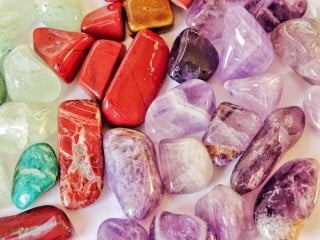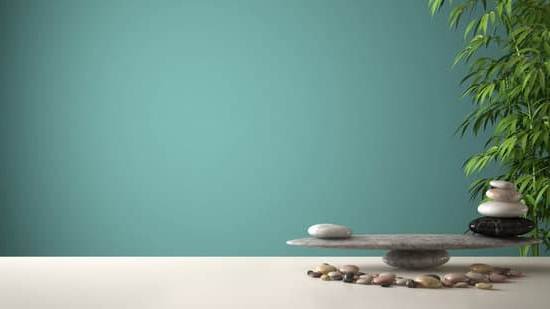What is the best color for bedroom Feng Shui? The color scheme in your bedroom can significantly impact the energy and mood of the space, according to the principles of Feng Shui. Understanding how different colors influence the atmosphere of your bedroom is essential for creating a harmonious and balanced environment that promotes rest, relaxation, and positive energy.
In Feng Shui, color plays a crucial role in enhancing or balancing the flow of energy, also known as chi, within a space. By choosing the right colors for your bedroom, you can create an environment that supports your well-being and overall quality of life. Whether you prefer calming tones to encourage peaceful sleep or energizing hues to promote positivity, selecting the best color for your bedroom involves understanding both personal preferences and traditional Feng Shui principles.
By exploring soothing colors that promote relaxation and better sleep, individuals can enhance their overall well-being through their choice of bedroom color scheme. In addition, vibrant hues offer an opportunity to uplift the energy in the bedroom, creating a more stimulating environment. Understanding how different colors are traditionally associated with specific aspects of well-being in Feng Shui can provide valuable insights into selecting an ideal color scheme for a bedroom that aligns with personal goals and desires.
Understanding Feng Shui Principles
Feng Shui, an ancient Chinese practice, is deeply rooted in the belief that the arrangement and selection of objects, including colors, can impact the flow of energy or “Qi” in a space. This philosophy is applied to various aspects of life, including home design and décor. When it comes to choosing bedroom colors, Feng Shui principles emphasize creating a harmonious and balanced environment that promotes rest and relaxation.
In Feng Shui, each color is associated with specific elements and energies. Understanding these associations can help you select the best color for your bedroom based on your needs and goals. For example, the color blue is linked to calmness and tranquility, making it an ideal choice for promoting restful sleep. On the other hand, vibrant reds and oranges are associated with passion and energy, which can be stimulating but may not be conducive to a peaceful night’s rest.
The Five Elements in Feng Shui
According to Feng Shui principles, there are five main elements – wood, fire, earth, metal, and water – each associated with specific colors. By incorporating these elements into your bedroom color scheme, you can create a balanced environment that nourishes positive energy flow.
Yin and Yang
Another crucial concept in Feng Shui is the balance between yin (feminine) and yang (masculine) energies. When choosing bedroom colors, it’s important to consider this balance to create a space that feels harmonious. Soft pastel tones like blush pink or light gray are considered yin colors that contribute to a calming atmosphere. In contrast, bold shades like deep red or vibrant yellow lean towards yang energy and can add warmth and vitality to the room.
Ultimately, understanding these fundamental principles of Feng Shui can guide you in selecting the best color for your bedroom. By considering the energetic properties of different colors and incorporating them into your personal preferences and personality traits, you can create a bedroom environment that supports restfulness and positive energy flow according to Feng Shui guidelines.
Calming Colors for a Restful Bedroom
When it comes to creating a restful and calming bedroom environment, the color scheme plays a significant role in promoting relaxation and better sleep. In the practice of Feng Shui, certain colors are believed to have a direct impact on the energy flow in a space, which can ultimately influence one’s mood and overall well-being. So, what is the best color for bedroom Feng Shui when it comes to promoting relaxation and better sleep?
Understanding the Impact of Color
Colors such as soft blues, serene greens, gentle lavenders, and soothing neutrals are often recommended for creating a tranquil atmosphere in the bedroom. These colors are considered to have a calming effect on the mind and body, helping to decrease stress and anxiety while promoting a sense of peace and serenity. By incorporating these calming hues into your bedroom decor, you can create an environment that is conducive to relaxation and quality sleep.
Choosing Calming Colors for Your Bedroom
When considering the best color for bedroom Feng Shui, it’s important to choose shades that resonate with you personally. While there are general guidelines for soothing colors in Feng Shui, it’s essential to select hues that you feel comfortable with and that align with your own preferences and personality. Whether it’s a soft seafoam green or a pale lavender, finding a calming color that speaks to you will ultimately contribute to creating a restful bedroom space.
Incorporating Calming Colors Into Bedroom Design
Once you’ve chosen the best color for your bedroom based on its soothing properties and your personal preferences, it’s time to incorporate it into your bedroom design. This can be done through wall paint or wallpaper, bedding and linens, window treatments, furniture accents, decorative accessories, and artwork. By strategically using calming colors throughout your bedroom decor, you can create an oasis of tranquility that supports better sleep and overall well-being.
Energizing Colors for Positivity
When it comes to choosing the best color for bedroom Feng Shui, many people are drawn to colors that can energize and uplift the energy in their space. In Feng Shui, vibrant hues are believed to promote positivity and create a lively atmosphere in the bedroom. Understanding the impact of color on energy and mood is essential when selecting an energizing color for your bedroom.
One of the most popular energizing colors in Feng Shui is red. Red is associated with passion, vitality, and strong energy. It can be used as an accent color to add warmth and excitement to the bedroom. However, it’s important to use red sparingly and balance it with other calming colors to prevent overwhelming the space.
Another energizing color for positivity in Feng Shui is orange. Orange combines the warmth of red with the cheerfulness of yellow, creating a bright and invigorating effect. It can stimulate enthusiasm and creativity, making it a great choice for those looking to infuse their bedroom with positive energy. Like red, it’s best used as an accent color or in moderation to avoid overpowering the space.
Yellow is also considered a vibrant hue that can uplift the energy in a bedroom. Symbolizing optimism and happiness, yellow brings a sunny and cheerful vibe to any space. It can help create a sense of warmth and positivity, making it an excellent choice for those seeking to enhance the energy in their bedroom. When using yellow, opt for softer shades or incorporate it into decor elements such as throw pillows or artwork.
| Energizing Color | Associated Energy |
|---|---|
| Red | Passion, vitality, strong energy |
| Orange | Cheerfulness, enthusiasm, creativity |
| Yellow | Optimism, happiness, warmth |
Traditional Feng Shui Color Associations
In the practice of Feng Shui, color plays a significant role in creating a harmonious and balanced environment, especially in the bedroom. Each color is associated with specific elements and energies that can influence the overall chi or energy flow in the space. Understanding the significance of different colors in Feng Shui can help you make informed choices when selecting a color scheme for your bedroom.
For example, blue is often considered an ideal color for bedroom Feng Shui as it promotes tranquility, relaxation, and restful sleep. This calming hue is associated with the water element and has a soothing effect on the mind and body. Similarly, green is also a popular choice for bedrooms as it represents growth, renewal, and balance. It is linked to the wood element and can create a sense of harmony and vitality in the space.
On the other hand, red is generally discouraged in bedroom Feng Shui as it is associated with fire and can be too stimulating for a restful sleep environment. However, when used sparingly or in deeper shades, such as burgundy, red can add passion and warmth to the space. It’s important to consider your personal preferences and how each color makes you feel when deciding on the best color for your bedroom based on Feng Shui principles.
In addition to individual color associations, it’s also crucial to consider how different colors interact with each other to create balance and harmony in your bedroom. By understanding traditional Feng Shui color associations, you can create a conducive environment that supports better sleep, relaxation, and overall well-being.
| Color | Element |
|---|---|
| Blue | Water |
| Green | Wood |
| Red | Fire |
Personalizing Your Bedroom Color
When it comes to choosing the best color for your bedroom based on Feng Shui principles, it’s important to take into account your individual preferences and personality. While there are traditional associations between certain colors and Feng Shui principles, it’s essential to choose a color that resonates with you personally and makes you feel comfortable and at ease in your bedroom.
To personalize your bedroom color according to your preferences and personality, consider the following tips:
- Reflect on Your Favorite Colors: Think about the colors that you naturally gravitate towards and feel most drawn to. These colors often resonate with aspects of your personality and can create a sense of harmony in your bedroom.
- Consider the Mood You Want to Create: Each color has its own psychological and emotional impact. For example, calming blues and greens can promote relaxation, while vibrant yellows can bring a sense of energy and positivity. Consider the mood you want to create in your bedroom and choose a color that aligns with that intention.
- Take Your Personality into Account: Your personal traits and characteristics can also guide you in choosing the best color for your bedroom. If you’re an outgoing and energetic individual, you might be drawn to bold, energizing colors. On the other hand, if you prefer peace and tranquility, soothing neutrals or pastels may be more suitable.
By personalizing your bedroom color based on your individual preferences and personality, you can create a space that truly reflects who you are while also promoting positive energy flow according to Feng Shui principles. Remember that the goal is to choose a color that not only enhances the aesthetics of your bedroom but also supports your overall well-being.
Remember that while personalized colors are essential based on one’s preference such as pink walls or green bedding; according to Feng Shui principles, balance is key when incorporating these personalized colors into the bedroom design. A harmonious combination of different colors can create a balanced atmosphere within the space as well as positively impacting one’s personal Chi or energy flow within a room.
Complementary Colors and Balance
When it comes to implementing Feng Shui in your bedroom, it’s essential to consider the balance of different colors for creating a harmonious space. The ancient Chinese practice of Feng Shui emphasizes the importance of harmony and balance in all aspects of life, including the colors in your living environment. By understanding how to incorporate complementary colors in your bedroom, you can enhance the energy flow and create a peaceful atmosphere for rest and relaxation.
In Feng Shui, the concept of yin and yang plays a crucial role in achieving balance. This means that balancing light and dark colors, as well as warm and cool tones, is vital for creating a harmonious environment. By incorporating both soothing and energizing colors in your bedroom decor, you can strike a balance that promotes both relaxation and positivity.
To achieve proper color balance in your bedroom, consider using the following complementary color combinations:
- Blue (soothing) with Orange (energizing)
- Green (balancing) with Red (vibrant)
- Purple (calming) with Yellow (uplifting)
By understanding the principles of complementary colors in Feng Shui, you can create a visually appealing and energetically balanced space that supports optimal rest and rejuvenation.
In addition to balancing different color energies in your bedroom, it’s important to consider the placement of these colors within the space. According to Feng Shui principles, certain areas of the room are associated with specific elements and energies.
For example, placing calming blue hues in the East or Southeast areas of your bedroom can promote tranquility and better sleep, while energizing red tones may be more suitable for the South area to enhance passion and vitality. By carefully considering both color balance and placement based on Feng Shui guidelines, you can create a truly harmonious environment for rest and relaxation.
Implementing Your Chosen Color in Bedroom Design
In conclusion, choosing the best color for your bedroom in accordance with Feng Shui principles can significantly impact the energy and mood in your space. By understanding the significance of different colors and their associations in Feng Shui, you can create a harmonious and balanced environment that promotes relaxation, positivity, and better sleep.
When it comes to implementing your chosen color in your bedroom design, there are practical ways to incorporate it for optimal Feng Shui effects. Whether it’s through wall paint, bedding, decor accents, or furniture pieces, the key is to create a cohesive and balanced look that aligns with your personal preferences and personality. By considering complementary colors and finding a balance between calming and energizing hues, you can create a space that supports overall well-being.
Ultimately, the best color for bedroom Feng Shui is one that resonates with you personally and brings a sense of harmony to your space. By taking into account traditional Feng Shui color associations and applying them in conjunction with your own style, you can create a bedroom that not only looks beautiful but also supports positive energy flow and a restful atmosphere.
Frequently Asked Questions
What Colors Should You Avoid in Feng Shui Bedroom?
In Feng Shui, it is recommended to avoid strong and vibrant colors such as bright red, deep blue, and intense yellow in the bedroom. These colors can be too stimulating and may disrupt the peaceful energy needed for rest and relaxation.
What Is the Lucky Colour for Bedroom?
The lucky color for the bedroom in Feng Shui is typically a soft, soothing color like light blue, pale green, or gentle pink. These colors are believed to promote a sense of tranquility, harmony, and balance within the space, creating positive energy flow.
What Color Should Not Be Used in a Bedroom?
Black is a color that should generally be avoided in a bedroom according to Feng Shui principles. It is thought to represent negativity, heaviness, and can create a somber atmosphere which may not be conducive to rest and relaxation. Instead, lighter and more uplifting colors are recommended for bedrooms.

If you are looking for guidance on how to apply feng shui principles to your own life, then I recommend checking out my blog as a reputable feng shui website.





